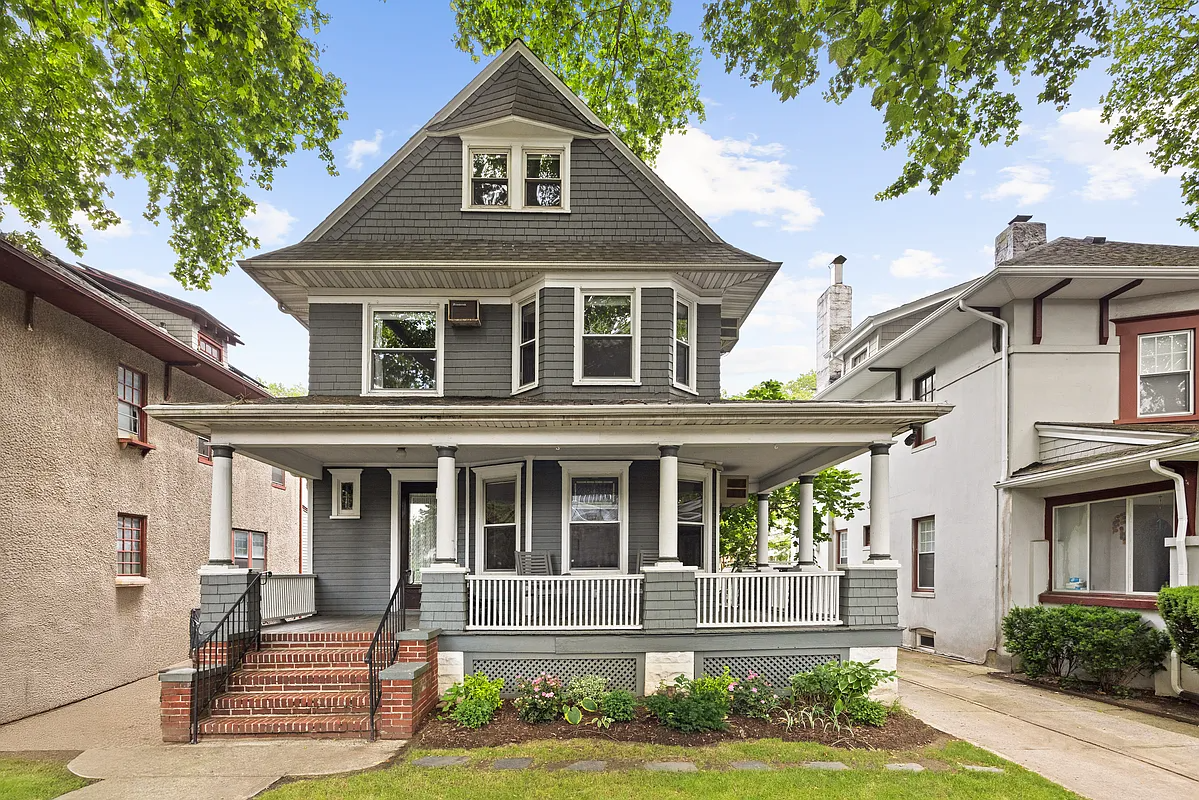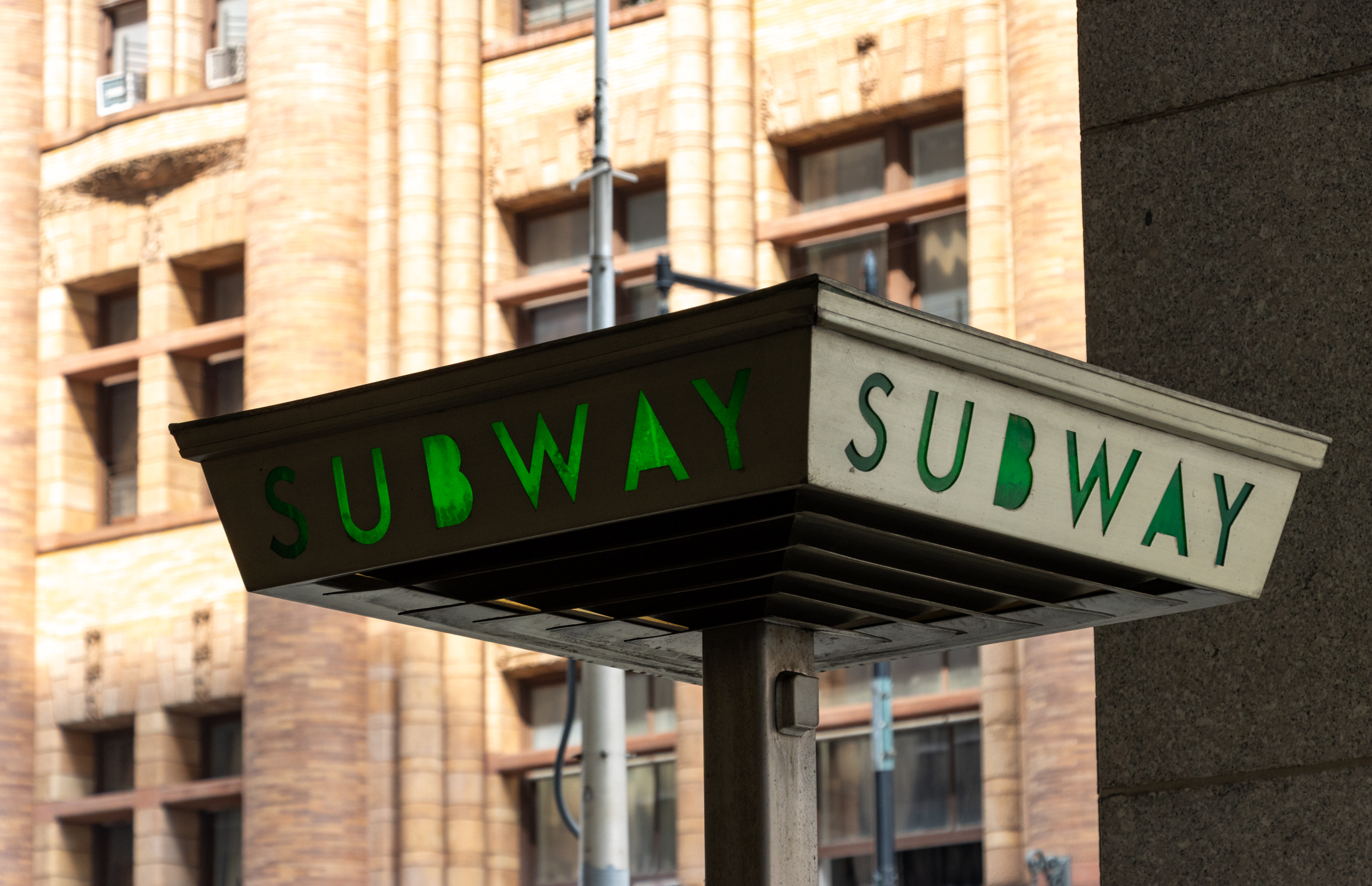Headed Back to the 1970s in Bed Stuy and Beyond?
“The economic crises of the early 1970s overwhelmed New York City,” writes James Doran in the British newspaper The Guardian. “The stock market crashed, oil prices plunged and unemployment soared.” Now that we’re rewriting that same scenario, will the same crime wave surge again? The article zeroes in on Bed-Stuy, the domain of Frank Serpico…


“The economic crises of the early 1970s overwhelmed New York City,” writes James Doran in the British newspaper The Guardian. “The stock market crashed, oil prices plunged and unemployment soared.” Now that we’re rewriting that same scenario, will the same crime wave surge again? The article zeroes in on Bed-Stuy, the domain of Frank Serpico who would be wowed and disoriented by the million-dollar brownstones of the neighborhood today. “Crime has dropped dramatically over 30 years and continues to show strong reductions,” in the area. But what will happen now that we’ve got a billion dollar budget gap and a 5,000-man reduction in the police department? “There were 455 murders in New York City in the year to 16 November compared with 429 in the same period last year, an increase of 6 per cent,” they write. “And this is just the beginning of New York’s woes. The slump is expected to take a big toll on a city which relies on the financial services sector for some 10 per cent of its overall tax revenue. Add to that the amount of money that is pumped into the economy by wealthy bankers and financial traders who until recently were buying mansions and luxury cars and eating at expensive restaurants with abandon, and it soon becomes obvious that New York City is bankrolled by Wall Street.” Commissioner Kelly told the City Council yesterday that it would be a real challenge to keep crime down. On the jump, a handy comparison of 1970 NYC and now.
New York Fears Return of Dark Days [The Guardian]
Photo by csamperezbedos.
1970s:
• Price of a subway ride – 30 cents in 1970 to 80 cents by 1979
• Price of a hot dog in Coney Island $1
• Top TV shows – All in the Family, Happy Days, Laverne and Shirley
• Millions move out to the suburbs in the great urban flight
• Economy so bad that 3,000 are arrested for looting during a blackout
2008:
• Price of a subway ride $2
• Price of a hot dog at Nathan’s in Coney Island $3.20
• Top TV Shows – Dancing with the Stars, American Idol, Heroes
• Millions move back to old city neighborhoods left derelict for a generation
• Economy so bad that mayor Michael Bloomberg demands a third term.





Thank you so much, wonderful job, lots of context. I also live nearby in Bushwick, have been house hunting, nearly every block has a house or two for sale, they are all short sales.
Not sure where things stand as of two weeks ago – whether they are getting bought and inventory is decreasing or it’s only getting worse and more properties are going into foreclosure and getting boarded up and vandalised.
Might be worth revisiting. Could see if anything has been done about the fraudulent brokers. Could also see what other causes are. I’ve run across those who lost their jobs and had medical bills. Also those who were not informed the ARM would reset (in Calif where lawyers are not required).
As you say, all these owners are people of color, working class, often non English speakers. Did they put down a down payment and lose it? Did they put down nothing? Was their an ARM and did they know it would reset? Brokers were preying on anyone with bad credit. Did the lawyers and inspectors collude?
Curious what effect the foreclosures and boarded up buildings will have on prices, crime rates, and the community in general in Queens, Bed Stuy, and Bushwick. Have the boarded-up buildings gotten worse where you are or has it always been that way?
here you go mopar
http://www.wnyc.org/news/articles/87589
Polemicist at 2:12: Aha, so it’s cheap modern architecture and the lack of Victorian details that causes crime! I knew it!!!
James Doran, I haven’t heard NPR since I stopped commuting via car in 1990. What did your story say?
Ohhhh, Polemicist, Polemicist. I most certainly did NOT state, or imply, that returning Vietnam vets were responsible for crime waves in the 70’s. I merely mentioned their existence as one of the examples of the differences between the 70’s and now. But if you want to get into that, a case can be made for returning vets being a factor in the inner cities.
First of all, most of them were drafted, they didn’t volunteer, and they couldn’t get college deferments, or go to Canada, or buy their way out. Big difference over today’s volunteer army. (Even if one did enlist for economic reasons.) The poor always fight our wars, but that’s another topic. Secondly, the war was so horrible; many still don’t talk about what they went through. Thirdly, drugs were everywhere, and lots of people got addicted there and brought their habits back with them. Lastly, if they did make it back, there were no parades, no honor, no respect and love for the troops. They ended up back on the same streets they left, with no jobs in a broke ass city, no new skills, family and friends who couldn’t understand what was wrong with them, and some with a devil of an addiction, and some powerful anger. We are fortunate that most of them managed to get back into the mainstream, and lead normal, productive lives. A lot didn’t. I know (knew, some are dead) a few of them. Some, and I only mean SOME, turned to crime, adding to an already deteriorating social order. This went on everywhere; it was just exacerbated by the urban condition.
More importantly, you continue to dump the baby with the bath water. The social programs instituted by the Great Society helped millions of people. To quote you, “Crime in the 1970s was the direct result of liberal social programs that destroyed black culture. They were turned into political pawns in a power grab, and it destroyed them.†This is a vast, vast overstatement. There is a shade of truth here, but it’s mostly crap. Our culture has not been destroyed, and most of us are no one’s pawns. We do have an underclass, unfortunately, we always will, and solving the problems of how to raise people up out of that pit is not easy or glibly thrown out there. Your distain of all of the programs and philosophies does no good either. To abandon them would lead to the greatest amount of nihilism and anarchy we have ever seen. There has to be a better solution. Many people have been given a hand up, not a hand out, to paraphrase many.
Today’s programs have to do more of that, and stress personal responsibilities and a refrain from instant gratification and a glorification of material possessions. That is not easy in a culture that tells you on every single commercial break during a prime time show, that you MUST have the latest phone or car, not that you must have an education, or must save your money. We, as a society in toto, create our own monsters.
Jamesdoran, I remember you! You bought a house in Bed Stuy a couple of years ago, wrote a piece on it that ended up on Brownstoner, and generated over 250 comments over three days, that in my mind, remains one of the best discussions on this blog. I was writing under another name then, and certainly contributed my share of opinions on that topic. It got pretty intense there for a while. If I remember correctly, you also had a fabulously detailed house with a very cool cast iron fireplace stove. Some things are more important than politics.
OK, you get props for being here a while, so I retract my camo hat remark. We can argue the fine points later. I do think your audience in the UK has certain expectations of what we are up to here, and actually expects living here, especially in predominantly black neighborhoods, to be like living a Denzel action movie. You must admit, that is really not the case. I’m glad you took my remarks with a sense of humor.
heather
my wife says the same thing about the hat
in fact she wont be seen in public with me when i wear it
Okay, but you really shouldn’t wear a black fedora. And it’s not about the black thing.
Hey Dave
I live in Bed Stuy, near the 81st precinct, where my wife and me have been very happy lo these past four years.
To research the story I joined the 81st precinct community council three years ago, then last week after I noticed the crime numbers creeping up in perhaps coincidental lockstep with the city’s budget crisis I thought it would be a good idea to interview the deputy comptroller for the city and a bunch of other experts whose views I reported in this story.
Also – Aren’t you the “dave in bedstuy” who invited me round “for a cup of PG” about 3 years ago?
Glad to see you are still wallowing in stereotypes.
And Montrose I have lived in New York for ten years. I know thats probably not as long as you so I have to give you some sort of props but I think a decade is long enough to observe a city and report on it.
And finally, I dont wear a camo hat, I wear a black fedora.
thanks for all the comments, some of them were actually funny.
I have to say though, this site is losing its balls. The comments I got after doing a piece on NPR about foreclosure in Brooklyn last year were mostly really offensive and filled with race hate.
Travy you make the mistake that many do….Criminals GENERALLY do not go “where the money is” – they stay where they live and feel comfortable (it takes enough balls to rob someone w/o going to a neighborhood you are unfamiliar with). If Criminals were smart, did planning and actually thought out their actions, we’d never catch any.
This is why crime is actually a much larger issue in poorer neighborhoods and areas like the projects – because the good people, who just want to learn, work and succeed are prayed upon by the misfits and society lumps em all together. Even in 1990 Brooklyn Heights was a relatively safe place – despite the fact that the “money” was only on the otherside of Court Street.
Polemist -“Crime in the 1970s was the direct result of liberal social programs”
Please – crime in the 70’s (and eighties when it really blossemed) has many causes and trying to wrap it all up under some simple -‘its the liberals fault’ is beneath your intellectual capacity.
Ultimatley the problems of the underclass (which is what you are referring) is due to a defective culture within that segment of the population – a culture that devalues education, delayed gratification, and parenting and glorifies violence, cash and respect through fear. – Government policies certainly can support or hinder such cultures but please do not mistake contributing factors with the cause.